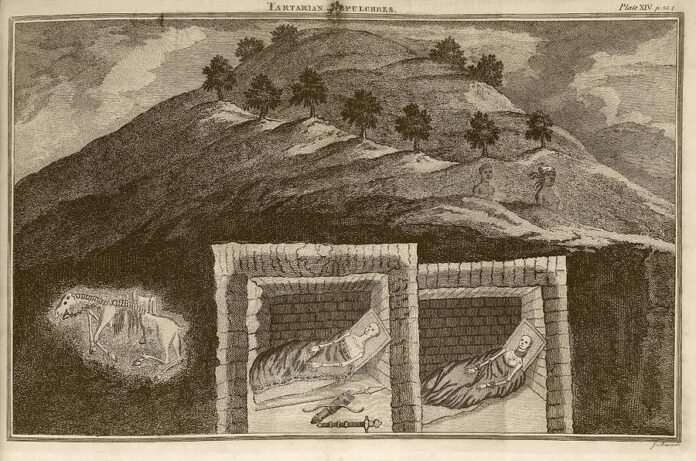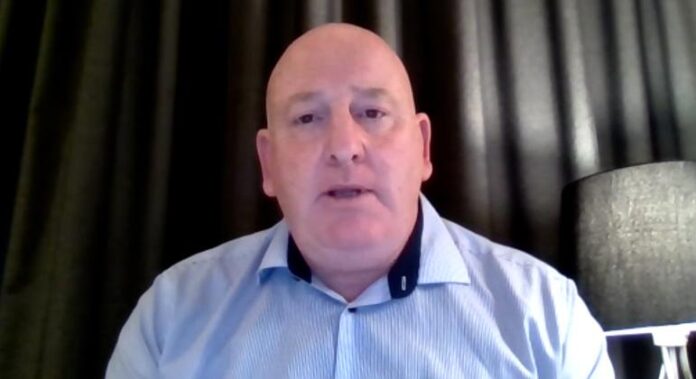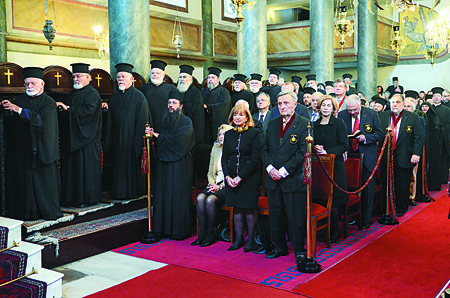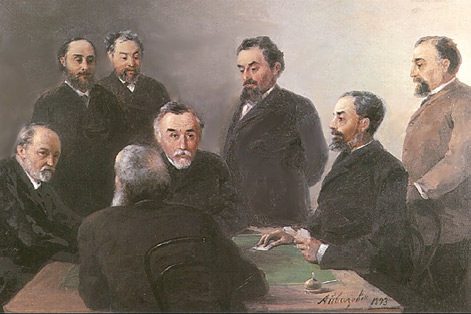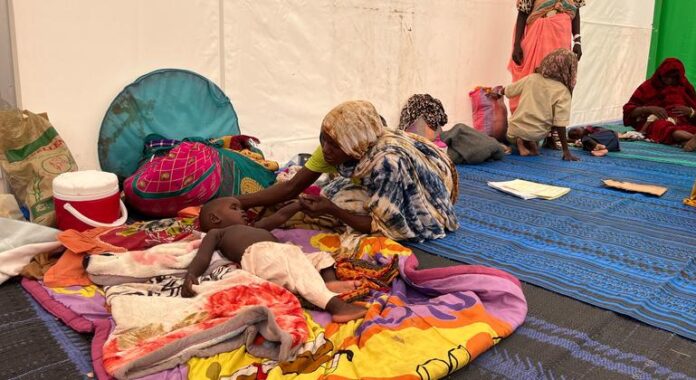The head of UN aid coordination office OCHA in the war-torn country Justin Brady said the famine conditions which already prevail in Zamzam camp, in North Darfur, are “very dire” and access has become increasingly difficult.
The UN-partnered IPC Famine Review Committee (FRC) announced last week that famine conditions are ongoing in the Zamzam Internally Displaced Persons (IDP) camp which hosts 500,000 IDPs outside besieged El Fasher.
In an interview with UN News’s Khaled Mohamed, Mr. Brady stressed that an effective response to the famine that is now evident as rival militaries continue to wreak havoc across Sudan, cannot be made on a “shoestring budget.”
“People think famine, and they think food, when in fact, what we need to respond, be it famine or displacement, is a package of assistance”, he said.
Water, sanitation, and hygiene are a crucial part of keeping beleaguered civilians alive, caught between Government troops and the Rapid Support Forces (RSF) for the past 15 months of brutal fighting: “They need health, protection, shelter, and non-food items.”
More resources critical
He told us that the situation can be reversed, “though it will take more than just humanitarians trying their hardest. We need the resources, political leverage, and advocacy to make the parties come to the table and end this war.”
Mr. Brady was speaking as the UN Food and Agriculture Organization (FAO) once again called for an immediate end to the fighting.
FAO said a rapid scale up of life-saving food, nutrition and cash assistance must go hand in hand with emergency agricultural aid.
“This is critical in conflict-affected areas to address immediate needs and avert the risk of famine from increasing and affecting other locations across Sudan”, the agency said.
Sudan is facing the worst levels of hunger ever recorded by the IPC in the country, as well as the world’s largest internally displaced crisis, with a staggering 755, 000 people are currently facing catastrophic levels of acute hunger (IPC Phase 5).
Around 25.6 million people are experiencing high levels of acute hunger.
The interview has been edited for length and clarity.
UN News: The IPC Famine Review Committee reported this month that the ongoing conflict in Sudan has pushed communities in North Darfur State into famine, notably the Zamzam camp near the state capital Al Fasher. Have you had the opportunity to get on-the-ground information recently about the current situation in that area? And is that area inaccessible to humanitarian workers?
Justin Brady: The situation in Zamzam particularly is very difficult. As you say, just outside of the state capital, which has been under siege and attacked by the Rapid Support Forces (RSF) for some weeks, if not months now. and access in that general area has become very difficult.
There are some partners on the ground there, such as MSF, who are providing us direct information, “ground truthing” on the situation, which is very dire, obviously given the classification of famine, which is something that, since April, when we launched the famine prevention plan, we were we were trying to avoid.
If we don’t have enough resources and we don’t have enough access, it is going to be very difficult to stop famine conditions from taking hold.
And that’s exactly what happened. we did see a major shift in the Government’s, approach to access. They were much more open to providing visas and travel permissions. That started in about mid-May. A bit late, though, in the process – and then, unfortunately, RSF has actually increased its bureaucratic impediments.
The Famine Review Committee returned a classification of famine for that location [Zamzam]. They did not draw a conclusion or provide recommendations on the other two camps – Abu Shouk and Al Salam – because they said that the data wasn’t sufficient. Think about it. Why wasn’t the data sufficient enough? Getting the data out due to access constraints has been a problem.
If we can’t get data out, how do we get the aid in? it’s just not a manageable situation in that regard. Now, people will then ask, are you going to declare a famine? The United Nations is not going to declare a famine in Sudan. Sudan has an internationally recognized government. In 2011, the United Nations did declare a famine in Somalia at a time when the Federal Transitional Government was not internationally recognized.
however, the Government of Sudan has indicated, through a press conference it recently held, as well as direct meetings I’ve had with them, that they do not recognize the classification of famine. They do not believe the data supports that. So, we should not expect a famine declaration from the Government at this time.
UN News: Which areas are most at risk of entering the famine cycle if the current conditions in Sudan continue?
Justin Brady: Yeah. The FRC (Famine Review Committee) data and this again is based off the integrated phase classification, the IPC, which is the internationally recognized system, for looking at food insecurity. They drew the conclusion that there are 14 localities where conditions similar to ZamZam probably exist. What are those conditions? Heavy displacement, conflict. you know, impacting access not only of humanitarians, but also of the commercial sector to provide goods to the market.
So we’re not even talking about people’s access to food. we’re talking about the availability of food. Is food actually there?
If there is food there, the access to it is quite limited because it is extremely expensive. We’re in a war economy. And we’ve seen prices skyrocket. We’ve seen the value of the Sudanese pound plummet. So those 14 localities, those are in the greater Darfurs, not just in North Darfur, Khartoum state, Kordofan states, and Jazeera, which is the breadbasket of the country.
To think that a famine might take hold there really exposes the nature of this entire conflict. So, we are doing our best to get to those various areas. And in recent weeks, the seasonal rains have started. and those are an impediment themselves that you can’t negotiate with.
The Government in February closed our access as humanitarians to the Adri crossing from Chad. That would lead very quickly, to West Darfur’s capital, Al Jenina, and then give us access to not only West Darfur, but Central and South Darfur as well. and the only opening we had that was authorized by the Government was the Tina crossing in North Darfur. That leads to Al Fasher.
Access continues to be a major problem. And some donors have seen that and said, well, we’ll give you funding when you get access.
I’m afraid, one, there’s a natural lag between funding streams and actual operations on the ground, depending on what one needs to procure, whom you need to recruit, and the activity you’re doing – it could take six, eight weeks, for money that’s received by a donor to translate into activities.
So we need to be ahead of this.
Second of all, when we do get access, we need to take advantage of those openings very quickly. If we don’t, they will close very quickly. So not having enough resources…Our appeal for this year is only a third funded, under $900 million received.
Having been involved with two famine prevention operations and now what is a famine response operation, you can’t do these on a shoestring budget. We need resources and, we are just not receiving them in the quantities required to do this.
And that limitation in resources has also caused us to prioritize. So that we are not really responding to people who are in IPC 3 phase [of the emergency food classification], which is a crisis level…Unfortunately, we’re having to drive right by them as we try to reach, the most, vulnerable cases, those closest to famine, when in fact, we should be helping everybody.
Children collect clean, safe water from a UNICEF-installed station in Al-Serif village in Darfur.
UN News: Could you tell us more about the latest response to displacement from areas across Sudan, including Sennar, the Blue Nile, and Kassala States?
Justin Brady: You have this offensive that RFS have pushed, into Sennar state and White Nile, that has caused quite a bit of displacement from Sinja Town itself, most of that headed north into Government-controlled areas where we already have massive numbers of displaced. This is the largest displacement crisis in the world with 10 million internally displaced.
Another two million-plus have gone over the border into neighboring countries in the region. So, the interesting thing is, when we talk about ZamZam, we’re talking about an IDP camp. And that was sort of the norm. The model in Darfur was that IDPs would be settled into a camp. Whereas in the east and the north, since the war began in April of 2023, the vast majority of these IDPs are residing with host communities.
Now, this has a couple of impacts. Number one, it’s a little bit difficult for us to find them. and we don’t do a status-based response. If you’re an IDP, you don’t, by definition, get assistance. but it’s very difficult for us to assess the condition of those people. But their presence there is also having, a debilitating effect on the resilience of the host communities themselves.
The best we could do there is to pump resources into the basic services, so everybody benefits. But again, we don’t have enough resources to prioritize those caseloads.
I’m not even touching on the education. the fact of the matter is, the education system in Sudan, except for a few locations, has broken down completely over the past year. plus, we were seeing children missing out on another year of education. this is having a debilitating effect on the present, but it will.
The legacy of this conflict is going to be felt for decades and generations to come.
UN News: You mentioned floods and heavy rain, and those are another challenge facing people in Sudan. Can you please tell us more about the humanitarian impact of this and the and response?
Justin Brady: The rains, as I said, are a yearly occurrence. And, you know, when we talk about Al Jazeera State River Nile states in the past and I served here as the Head of Office back in 2022, if we had any activities in those states, it was only related to the flooding. They did not experience humanitarian problems there.
Flooding is causing damage and losses, to people’s, belongings as well as their livelihoods, causing them to displace, if only on a temporary basis in some cases, the bigger concern is that it is going to contribute to waterborne diseases.
Water, sanitation, hygiene is not going to solve it on its own. We need those partners who do those various activities working together in one location to have an impact. And that has been an issue because the funding, as I mentioned, is only a third. but it is unevenly distributed across the areas of work. food security has received over 50 per cent of the funding that they have requested.
Obviously, people think famine and they think food, when in fact, what we need to respond, be it famine or displacement, is a package of assistance. not just food, but people also need, water, sanitation, hygiene. They need health, they need protection. They need shelter and non-food items. and in the case of famine areas, we need nutrition working there very closely.
UN News: The conflict poses a special challenge for women and girls. UNFPA reports that 6.7 million people are at risk of gender-based violence. And 3.5 million women and girls of reproductive age need reproductive health care services. Could you tell us more about this?
Justin Brady: For months now, we’ve been saying this has been a war against women and girls. And rape, sexual violence has been part of the strategy of some of the belligerents.
The reports of that [are] much more prevalent in areas controlled by the RSF or where the RSF is present. The RSF may deny that and say it’s not them, but they have created the conditions where this is possible.
They have removed the rule of law and, unfortunate impunity allows these perpetrators to do the worst thing possible. and we have reports of survivors of these attacks committing suicide thereafter.
The stigma in Sudan is very heavy from sexual based violence. and it’s very difficult to continue, as you did before.
This is something that we are looking to see how we can provide more funding – again, an area of work that has gotten very short shrift from the donors. as far as, the resources go. And this is also part of our approach to have a centrality of protection. This is a concept in the humanitarian field where we have the protection cluster, we have protection actors.
The reality is they only encounter tens of maybe hundreds of thousands of people. because of the reach they have. We’re talking hundreds if not millions of Sudanese. And this is, an approach where those other technical areas of work take on the responsibilities of strengthening the protection environment.
This is particularly important, since the departure of UNITAMS, the political mission, which had a protection pillar, and had people in the field who were reporting, they were working very closely with the High Commissioner for Human rights. When the Government, asked for that mandate to end, we lost a lot of capacity in this field.
I think one great development from the increase in visas allowed by the government, in addition to more humanity and technical staff coming in to help with the work, is the fact that journalists are now getting visas and coming in to not just Port Sudan, but traveling throughout, different portions of Sudan and bringing some accountability…shedding light on what has been a dark area where people, you know, nefarious actors, mostly young men, have gotten away with some of the most horrible acts you can imagine.
A woman who fled her home due to conflict rests at a centre for displaced people in El Fasher, Darfur.
UN News: Finally, what message would you like to send to reverse the deepening humanitarian crisis in Sudan and restore some normalcy to people’s lives?
Justin Brady: I don’t know if this frustration comes through in my voice. we can stop this. We can contain this. We can reverse this. as we’ve been saying for months, though, it will take more than just humanitarians trying their hardest. we need the resources, and we need the political leverage and advocacy to make the parties come to the table and end this war.
If it doesn’t stop, then it is going to be near impossible for us to reach those who need us with the assistance that we have. If we are to do this on a shoestring budget and pass by people who desperately need our assistance but who aren’t on death’s doorstep, we are doing a disservice to the people of Sudan again, not just today, but for generations to come.



